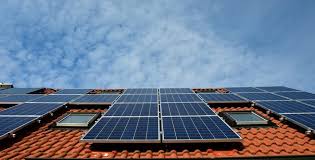DST-IIEST Solar PV Hub inaugurated at Shibpur, WB
On October 27, 2020, the Union Education Minister, Shri Ramesh pokhriyal nishank inaugurated the DST-IIEST Solar PV Hub. The hub was inaugurated at Shibpur in Howrah District of West Bengal .
Highlights
The funds to develop the hub was allocated by the Department of Science and Technology. It is backed by the centre of excellence for green energy and sensor system located at the IIEST. The concept of establishing the Solar PV hub mooted in 2018. It aims to have world-class research facility. It will act as a central node for dissemination of knowledge in the field of solar energy, research and development, fabrication, solar photovoltaics, solar PV module, testing of solar cells and Solar PV systems. The hub provides great boost for the eastern and North Eastern regions of India.
Also, the hub will help to align the national and local Industries, startup, Research Institute under the Make in India initiative. This will help in smooth transition from fossil fuel energy to solar energy.
Benefits
As there is no such facility elsewhere in the North Eastern region, the Solar hub will greatly help in transfer of indigenous Technologies, characterization and testing of solar cells, training for fabrication and Solar PV module.
Solar energy in the northeast
The power stations in the North Eastern region is planned, designed, investigated, constructed, operated by the North Eastern electric power corporation limited, NEEPCO. It was established in 1976 and is owned by the Public Sector Unit National Thermal Power Corporation Limited.
According to the SWANITI initiative, the North Eastern states have higher potential of renewable energy. Around 65 percentage of Nagaland state demand of power can be fulfilled by renewable energy, 64% in Sikkim and 82% in Arunachal Pradesh.
There are wide range of solar projects that are emerging in the Northeast in recent years. The Meghalaya government sanctioned 25 crores of Rupees to install solar light under the Green City project. The Nagaland government recently set up innovative solar powered water treatment units in three villages near the state’s capital. The Manipur renewable energy Development Agency recently launched a solar thermal scheme that aims to provide 10,000 solar heaters to nine districts in the state. The Government of Mizoram provides oxidized solar equipment.
The share of renewable energy in Assam is just 3 percentage. However, it has greater potential than the current. It can generate 4.4 to 5.6 units of solar power per square metre per day according to The energy Research Institute, TERI. This is because the state has 240 to 250 clear days every year.
Month: Current Affairs - October, 2020


